Key moments from the U.S.-led campaign in Iraq and Syria
U.S.-led forces have been carrying out airstrikes against Islamic State militants in Iraq and Syria since 2014, but have tried to avoid getting drawn into Syria’s ruinous civil war. On Thursday, President Trump authorized the deployment of cruise missiles against a Syrian air base in retaliation for an apparent poison-gas attack that U.S. officials say was carried out by President Bashar Assad’s military.
Aug. 20, 2012
Obama declares a ‘red line’ in Syria
President Obama warns Syria’s leaders that using chemical weapons would be a “red line” for the United States.
Aug. 21, 2013
Hundreds die in chemical attack
Hundreds are killed in a poison-gas attack targeting pro-rebel suburbs of the Syrian capital, Damascus. Obama considers a military response, but decides against it when President Bashar Assad’s government agrees to give up its chemical weapons.
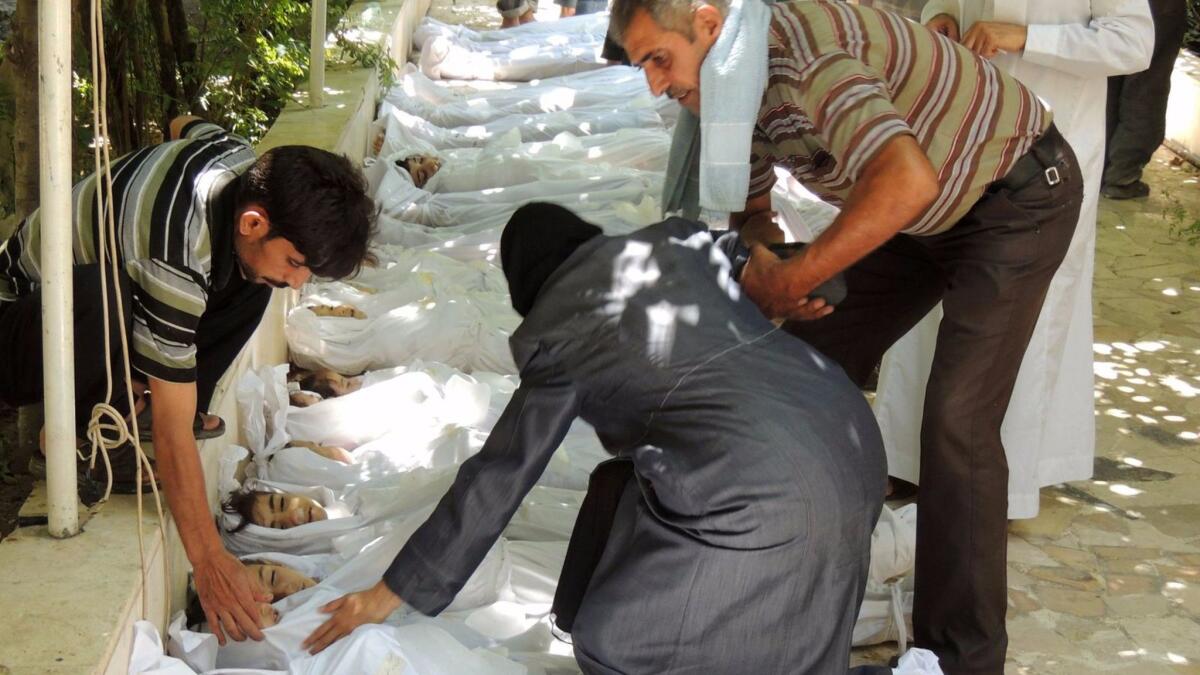
Jan. 14, 2014
Raqqah falls
Fighters loyal to Islamic State in Iraq and Syria take control of Raqqah after battling a coalition of rival rebel groups for the northern Syrian provincial capital.
June 10, 2014
Mosul falls
Islamic State in Iraq and Syria takes control of Mosul, Iraq’s second-largest city, before overrunning much of the northwest of the country.
June 18, 2014
Iraq seeks U.S. help
Iraq asks the U.S. to carry out airstrikes against Islamic State in Iraq and Syria.
June 29, 2014
Islamic State caliphate declared
Islamic State of Iraq and Syria announces in an audio recording that the militants have established a caliphate in eastern Syria and northwestern Iraq and are rebranding themselves as simply the Islamic State.
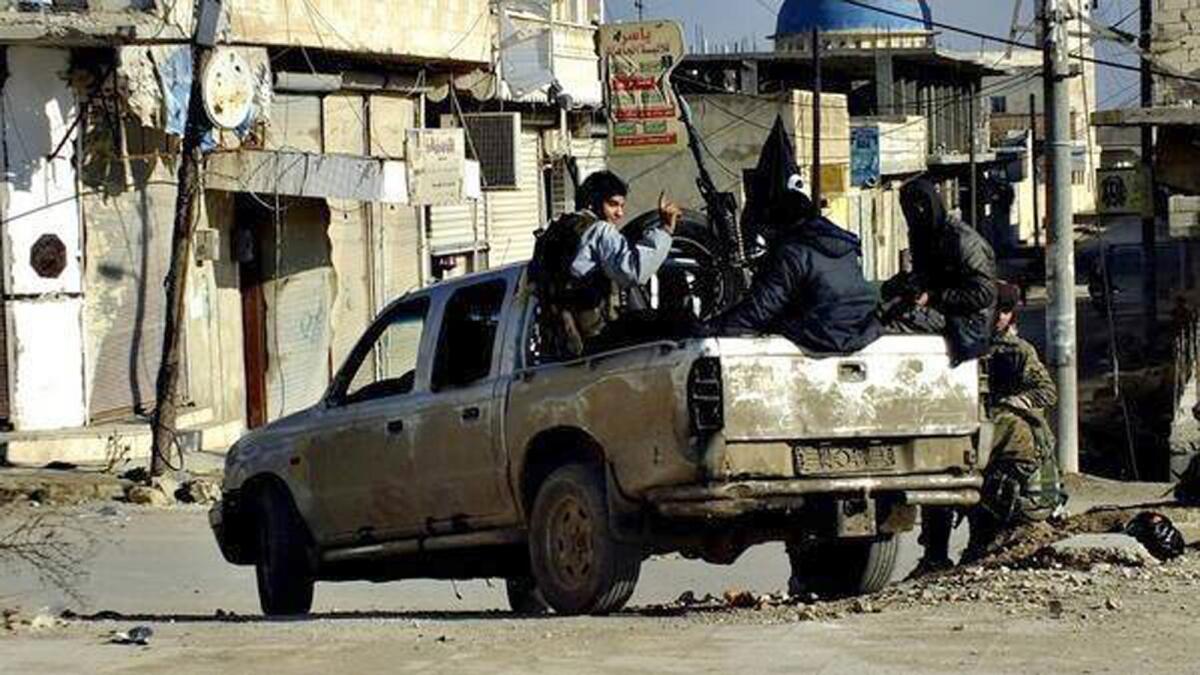
Aug. 3, 2014
Thousands displaced
Islamic State drives Kurdish forces out of the Iraqi towns of Sinjar and Zumar, sending thousands of Yazidi civilians fleeing to the country’s semi-autonomous Kurdish zone.

Aug. 7, 2014
Obama authorizes airstrikes
Obama, saying that he is acting to avert a genocide, announces that he has authorized airstrikes against Islamic State militants in Iraq. He also confirms that U.S. cargo planes have dropped supplies to displaced civilians in the area of Mt. Sinjar who faced imminent starvation.

Sept. 5, 2014
U.S. calls for a coalition against Islamic State
Obama vows at a NATO summit to build an international coalition, including Sunni Arab states, to "degrade and ultimately destroy" Islamic State.
Aug. 19, 2014
James Foley beheaded
Islamic State posts video online showing the beheading of American journalist James Foley.

Sept. 2, 2014
Steven Sotloff beheaded
Obama orders 350 additional troops be sent to Iraq as video surfaces of the beheading of a second American journalist, Steven Sotloff.
Sept. 23, 2014
Airstrikes begin in Syria
The U.S.-led coalition launches its first airstrikes against Islamic State inside Syria.
Jan. 26, 2015
Kobani recaptured
Kurdish fighters, backed by U.S. firepower, drive Islamic State from the Syrian border town of Kobani after four moths of fighting.

March 31, 2015
Tikrit ‘liberation’ announced
Iraqi Prime Minister Haidar Abadi announces the "liberation" of Tikrit, the hometown of former strongman Saddam Hussein, although fighting and looting continue there for days.

May 20, 2015
Palmyra falls to Islamic State
Islamic State fighters seize Palmyra and proceed to destroy many ancient ruins near the fabled Syrian town.
Sept. 30, 2015
Russia begins airstrikes in Syria
Russian warplanes carry out their first airstrikes in Syria. Russian officials say the attacks in support of Assad's government target Islamic State positions, but Syrian opposition activists say the areas hit are in the hands of other rebel factions, including some backed by the U.S.
Dec. 28, 2015
Ramadi declared liberated
The Iraqi military declares that Ramadi has been liberated from Islamic State, although a general in the western province of Anbar tells reporters that the militants still control parts of the city.
Nov. 13, 2015
Sinjar recaptured
Iraqi Kurdish forces announce the recapture of the northern Sinjar region from Islamic State.
March 27, 2016
Palmyra back in government hands
Syrian government forces recapture Palmyra with the help of Russian air power, but will be driven out again in December.
June 17, 2016
Fallujah declared liberated
Abadi announces that the Iraqi city of Fallujah, long a hotbed of Sunni extremism, has “returned to the bosom of the nation." The fighting prompted a massive exodus from the city that overwhelmed aid workers.
Nov. 29, 2016
U.S. says coalition mistakenly targeted forces loyal to Assad
The U.S. military admits that coalition forces carried out an air raid that mistakenly killed dozens of Syrian-backed troops on Sept. 17 in the eastern Syrian town of Dair Alzour.
Oct. 16, 2016
Dabiq recaptured
Turkish-backed Syrian rebels retake Dabiq, dealing a symbolic blow to Islamic State, which believes the town will be the site of a doomsday battle between jihadis and their Western enemies.
Oct. 17, 2016
Mosul offensive begins
The Iraqi government, backed by U.S. airstrikes, launches a long-awaited campaign to drive Islamic State from Mosul, the group’s last major stronghold in the country.
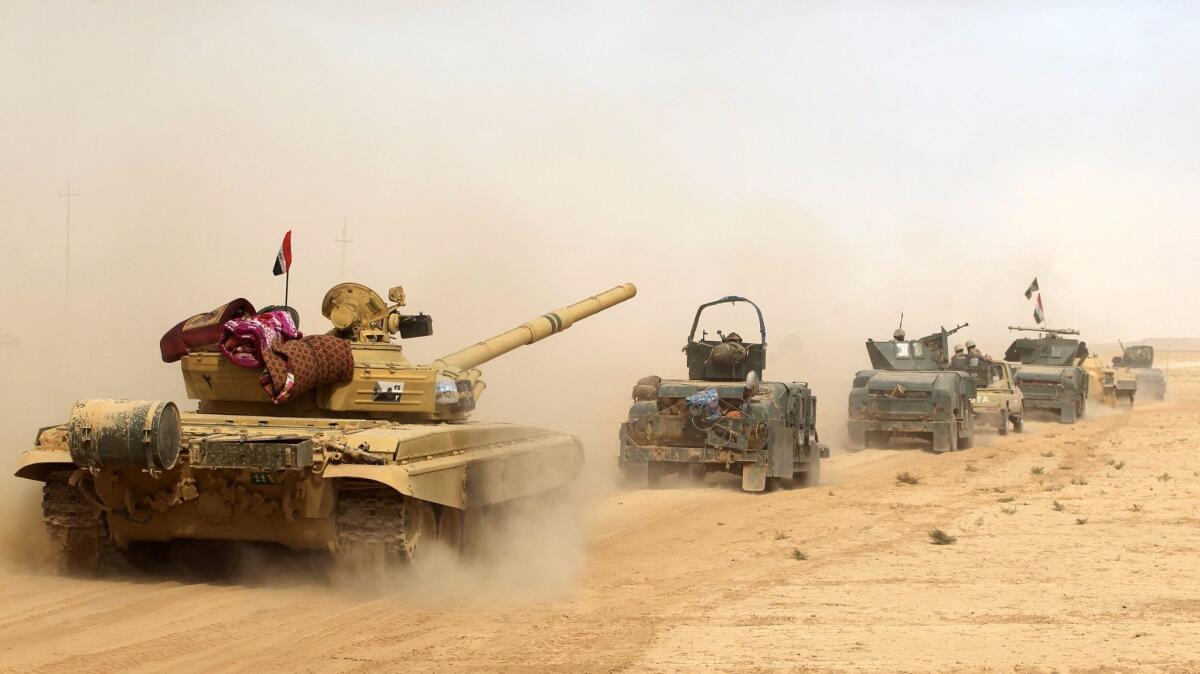
Dec. 22, 2016
Syria declares victory in Aleppo
Syria’s government declares victory in Aleppo after the evacuation of opposition fighters from the city’s devastated eastern sector. The rebels had held parts of the city — their last major urban stronghold — for nearly four years.
March 17, 2017
Hundreds killed in apparent airstrike in Mosul
An apparent airstrike in western Mosul kills nearly 300 people. The U.S.-led coalition says it is investigating whether it was responsible; Iraqi officials blame Islamic State.
April 4, 2017
Dozens killed in apparent poison-gas attack
The U.S. and its allies accuse Assad’s government of carrying out an attack using a suspected nerve agent that killed about 80 civilians in the rebel-controlled province of Idlib. President Trump says the attack "crosses many, many lines" and was a consequence of Obama's "weakness and irresolution."
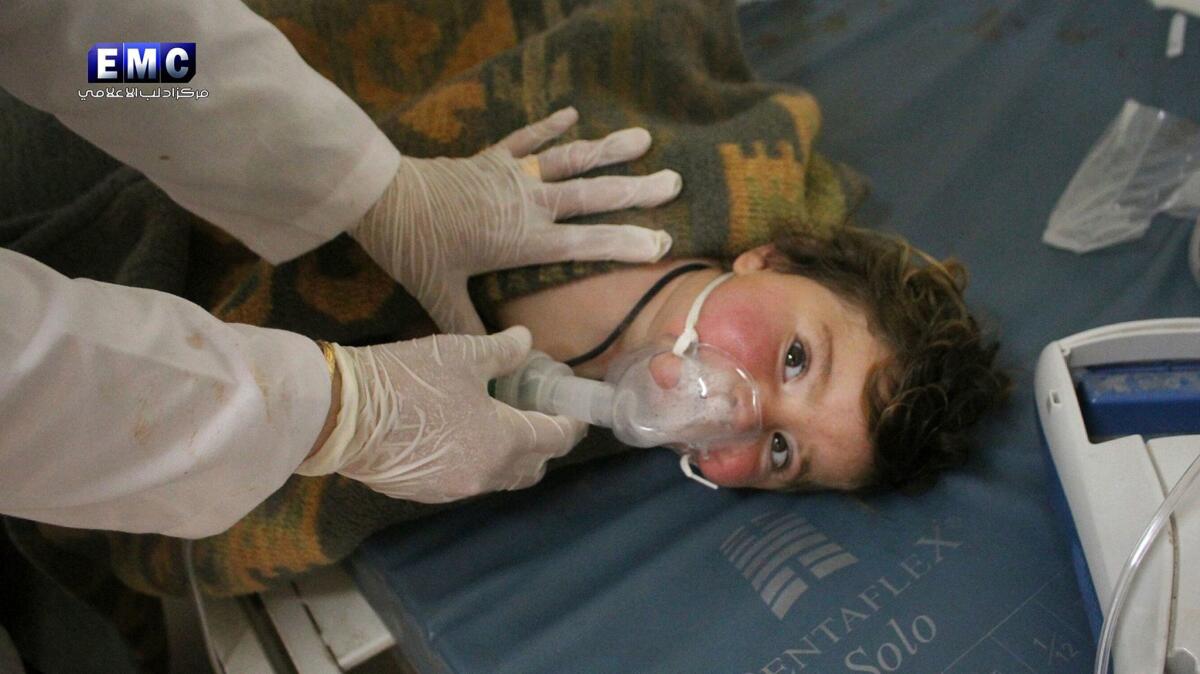
April 7, 2017
Cruise missiles launched into Syria
The U.S. fires 59 Tomahawk cruise missiles at a Syrian air base that officials said was used to launch the deadly poison gas attack on April 4.
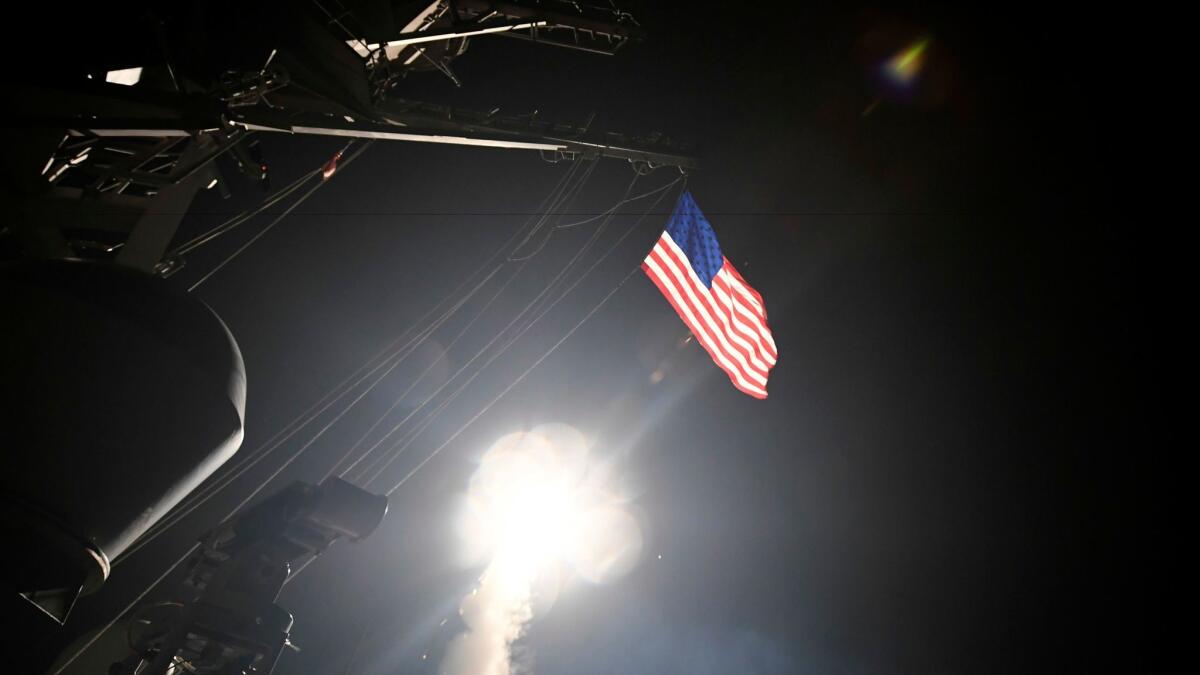
ALSO
U.S. launches dozens of missiles in response to chemical weapons attack
Here's some of what we know about the apparent chemical weapons attack in Syria
Sign up for Essential California
The most important California stories and recommendations in your inbox every morning.
You may occasionally receive promotional content from the Los Angeles Times.








